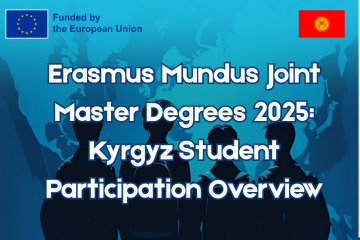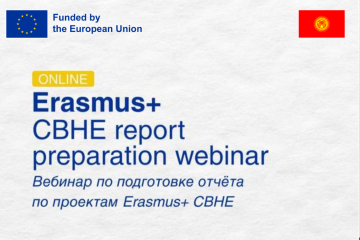The impact of the COVID-19 crisis puts at risk the progress that Kyrgyzstan has achieved during this time.
In light of this, the EU has stepped up its support to respond to the challenges raised by the outbreak. The EU response, made through grants amounting to more than EUR 36 Million, is a comprehensive response directed towards supporting macro-financial stability, social protection and food security, health, crisis management, and support to the private sector.
In the words of the EU Ambassador to the Kyrgyz Republic, H.E. Eduard Auer: “With this package, the European Union shows its continued engagement and solidarity with the Kyrgyz Republic and its people during this global crisis. The actions set out today aim to address the most pressing challenges raised by the pandemic. The EU as a reliable partner for the country remains committed to continuing its support in the aftermath of the crisis.”
For Kyrgyzstan, the EU support package includes EUR 30.8 Million that will be disbursed directly to the Treasury to contribute to the budgetary needs created by the crisis. This includes funding specifically to protect the most vulnerable as well as to ensure social protection and food security, among other basic services.
For health and crisis management, the EU has reoriented funds from existing programmes to assist, for example, the provision of 4,750 pieces of protective personal equipment for penitentiaries and the state customs service. Several actions also support mental health of vulnerable groups and awareness-raising campaigns on COVID-19. So far, over 20,000 people have already received training through webinars on how to use, assess and disseminate online information, and on how to combat fake news related to the pandemic.
Additionally, to facilitate continued learning for children, the EU is providing support of EUR 80,000 to develop online/distance learning platforms and contents, online assessment tools and a communication campaign to promote distance learning. The EU is paying particular attention to supporting those affected by gender-based and domestic violence. In particular, the EU is working with the UN to adapt its Spotlight Initiative on gender-based violence to support women.
Further actions within existing programmes will assist to mitigate the impact and to facilitate the recovery process. The broader response will include assistance to business recovery and job preservation, support to agro-businesses and ensuring the provision of basic services to the population, for example access to safe clean water and sanitation.
In line with the EU’s #TeamEurope approach, EU Member States and financial institutions have also supported the response in Kyrgyzstan on top of the EU contribution. The European Investment Bank (EIB), the EU’s lending arm, made a EUR 22 million loan available for crisis response. Germany has committed EUR 500.000 to GIZ for the support of the COVID Contingency Health plan and facilitated the timely opening of an Emergency Clinic in Jalalabad, financed through KfW (EUR 3 million). EUR 17 million from KfW projects will be used by the Ministry of Finance for loans to SMEs. Germany has also allocated EUR 200.000 for the crises response of the Red Cross / Red Crescent in Central Asia. Additionally, in cooperation with WHO, Poland sent nine medical professionals from the Polish Centre for International Aid to support the Kyrgyz medical teams in Bishkek and Osh to share and exchange expertise with Kyrgyz medical specialists.
To fight COVID-19 on a global scale, on 8 April, the EU, its Member States, the European Investment Bank and European Bank for Reconstruction and Development announced more than EUR 20 billion to partner countries’ efforts in tackling the pandemic. The EU is redirecting more than EUR 15.6 billion of existing funds previously allocated to our partners to tackle immediate needs, both humanitarian and in the health care sector, strengthen the health, water and sanitation systems of partner countries, and support research, and to address the economic and social consequences.
Detailed information is available on https://eeas.europa.eu/delegations/kyrgyz-republic/78091/node/78091_ru


